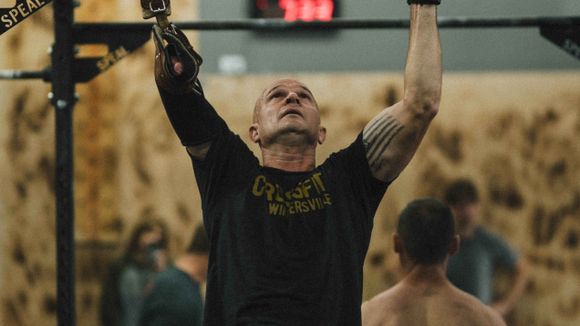It's never too late to start with strength training
An interesting new joint study by scientists from the UK, Canada and the USA, published in the journal Frontiers in Physiology, finds out that building muscle mass in the seventies and eighties of a person's life is possible for both non-trainers and masters of sport. Researchers from the University of Birmingham compared masters of sport aged 70 and 80 - athletes with a lot of experience and great physical shape, with non-training older people. Regardless of previous levels of preparation, the ability of adults to create new muscles is the same. This inspiring news is an important reminder that it is never too late to step into the gym and sport is great activity at any age. [ref. 1]
As stated in the study,
'Our findings show that long-term highly active athletes who typically perform 4-5 sessions of structured endurance training per week (8 hours in total) showed no greater capacity to increase iMyoPS compared to the healthy adult control group without a history of endurance training.'
The team, led by Dr Lee Breen, compared each participant's resting conditions and follow-up exercises over a 48-hour period by focusing on integrated myofibrillary protein synthesis (iMyoPS). Initially, the researchers believe that experienced athletes will have an increased ability to build muscle compared to their sedentary peers. Surprisingly, it turns out not to be the case.
The results also illustrate expected outcome. For example, athletes show higher markers of strength, VO2max (the maximum oxygen consumption rate measured during exercise with increasing intensity) and overall conditioning. The purpose of this study was to find out whether older people without sports training and habits can build muscles at the same rate as their peers with accumulated sports experience.
This study clearly shows that it doesn't matter if you haven't trained regularly your whole life, you can still benefit from strength training and sports in general whenever you start.
Obviously, the long-term inclusion of sport in everyday life, together with good nutrition, is the best approach to achieving good health. But even if you try sport activities later in life, it will help slow down the weakness associated with ageing and muscle damage. This is especially important and useful for both menopausal women and men over 50 years old, in which a number of factors cause a decrease in bone and muscle mass, weight loss and decreased muscle tone. [Ref. 2]
Other Benefits of Strength Training for Health
Reducing the rate at which you lose muscles as you get older (the condition is called "sarcopenia").
More energy and vitality.
Facilitating weight management.
- Stimulation of the production of synovial fluid in the joints.
Reducing symptoms of rheumatoid arthritis and fibromyalgia.
Reduction of inflammation and pain from immobilization or problems. with the musculoskeletal system.
Improving glucose control.










